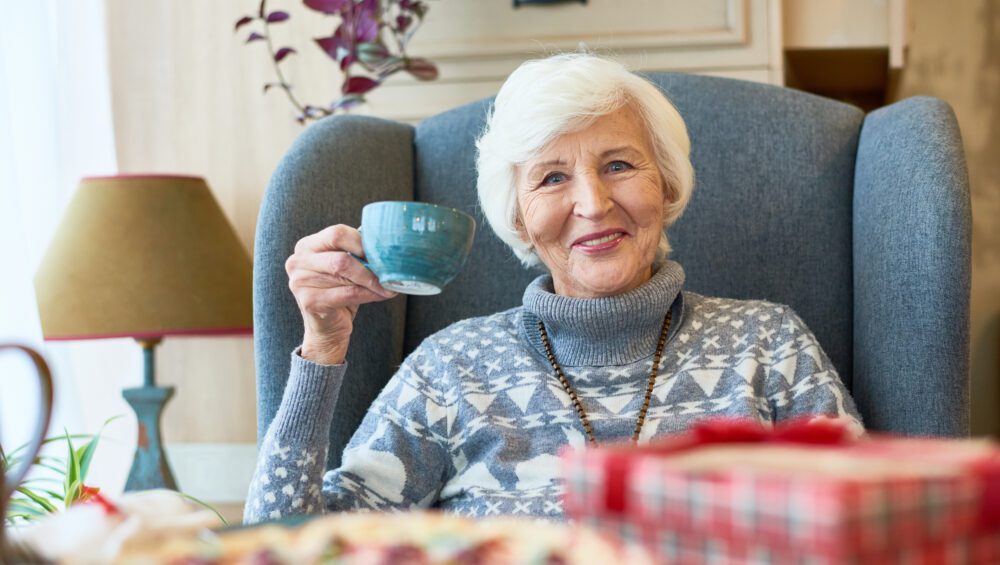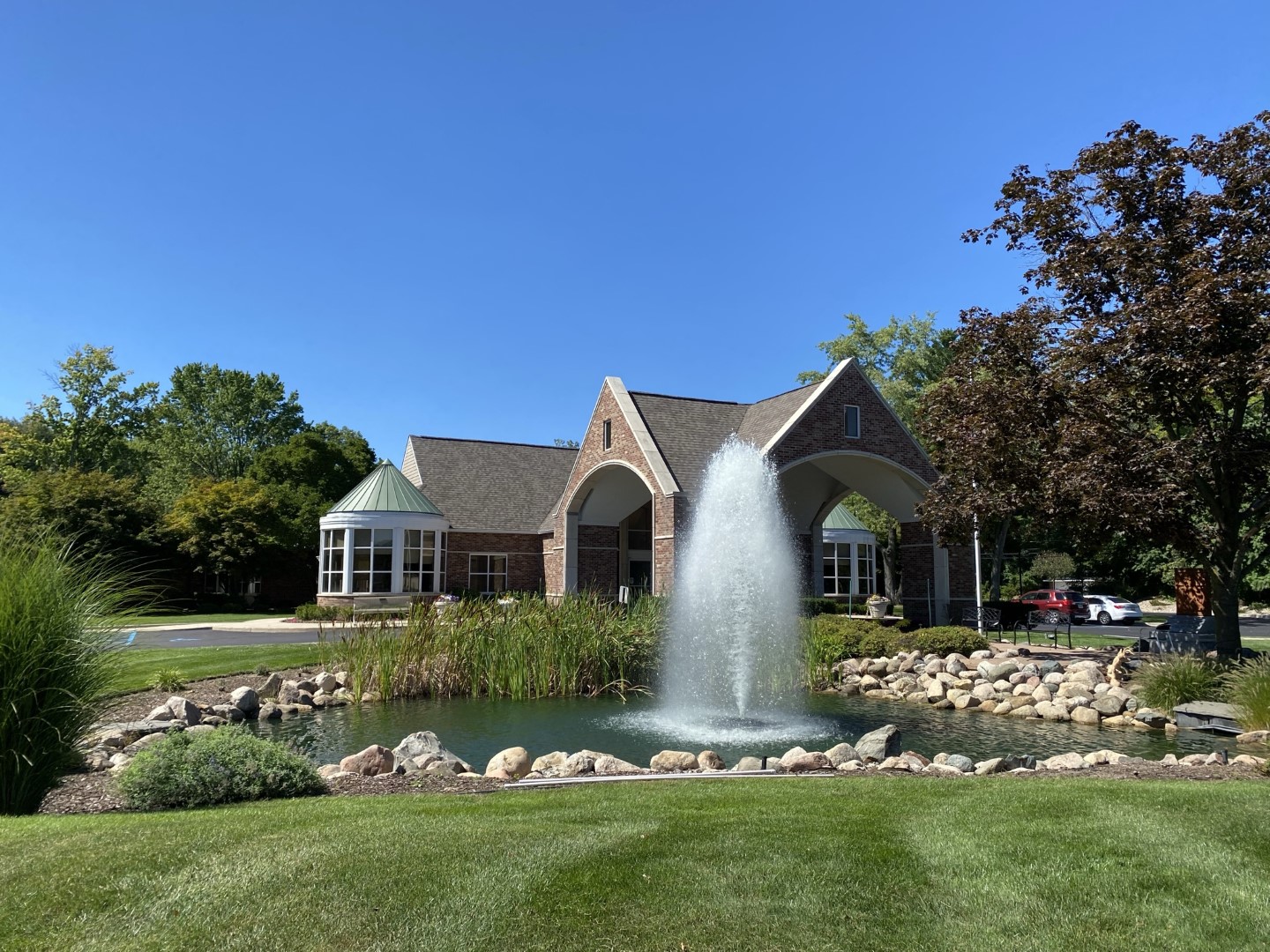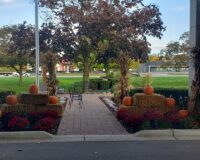Each winter season brings with it the beauty of snow-covered landscapes, but also the challenges of colder temperatures, flu season, and shorter days. For seniors in assisted living, these changes can pose unique health risks, from increased susceptibility to illness to potential mood declines due to limited sunlight. Families play a vital role in helping ensure their loved ones stay comfortable, healthy, and engaged during winter. Here’s a comprehensive checklist for senior winter wellness, specifically designed for those in assisted living.
-
Prioritize Flu and Cold Prevention
Why It’s Important: Seniors are particularly vulnerable to the flu and cold viruses, which can lead to more serious health issues due to weakened immune systems. In assisted living environments, the close proximity to other residents can increase the spread of these illnesses.
Key Steps:
- Ensure Flu Vaccinations: Work with the facility’s staff to confirm that your loved one has received their flu shot. If not, most assisted living facilities coordinate with local pharmacies or healthcare providers for vaccination.
- Promote Good Hygiene: Remind your loved one of the importance of regular handwashing, especially before meals and after social interactions. Consider providing hand sanitizers or wipes for convenience.
- Limit Exposure to Sick Visitors: Ask friends and family who feel under the weather to postpone visits until they are healthy. Video calls can serve as a great alternative to keep spirits high without risking exposure.
Family Involvement Tip: Schedule regular check-ins to discuss flu prevention efforts with facility staff and make sure your loved one has any needed hygiene supplies.
-
Address Nutritional Needs with Seasonal Adjustments
Why It’s Important: A balanced diet is essential for senior health, particularly in winter, as certain nutrients (like Vitamin D) are harder to obtain from sunlight alone. Nutrition can help strengthen the immune system and prevent winter illnesses.
Key Steps:
- Encourage a Vitamin-Rich Diet: Assist your loved one in enjoying meals rich in vitamins, including Vitamin C (found in citrus fruits) and Vitamin D (from fortified cereals and dairy products). Facilities typically offer seasonal meals, so discuss any dietary preferences or needs with the staff.
- Supplement with Warm, Nutritious Beverages: Soup, herbal teas, and hot cocoa can be both warming and nutrient-dense options for seniors. These are also comforting during the colder months.
- Monitor Hydration: Cold weather often reduces thirst, but hydration is still critical. Remind your loved one of the importance of drinking water regularly and check with the facility staff to ensure water is readily available.
Family Involvement Tip: During visits, bring along favorite nutritious snacks or beverages, and enjoy a warm meal together, if allowed, to encourage healthy eating habits.
-
Ensure Proper Winter Clothing and Warmth
Why It’s Important: Seniors can be more vulnerable to cold temperatures due to lower body heat regulation, putting them at risk for conditions like hypothermia. Staying warm indoors and out is essential for safety and comfort.
Key Steps:
- Provide Layered, Comfortable Clothing: Bring or send layers of warm clothing, such as sweaters, vests, and easy-to-wear jackets. Ensure these pieces are easy to put on and take off, especially for seniors with limited mobility.
- Consider Thermal Accessories: Hats, gloves, and scarves are essential for any outdoor winter outings, even if brief. Fleece blankets or lap blankets are also cozy additions to their room for extra warmth.
- Check Room Temperatures: Talk with the assisted living facility staff to ensure that your loved one’s room maintains a comfortable temperature and ask if space heaters are allowed or necessary.
Family Involvement Tip: During visits, check the comfort level of your loved one’s clothing and room temperature, and add any requested items to your winter care package.
-
Support Mental and Emotional Well-being
Why It’s Important: Seasonal changes can bring about seasonal affective disorder (SAD) or feelings of loneliness in seniors, especially when outdoor activities are limited. Combatting these effects is essential for a positive winter experience.
Key Steps:
- Encourage Socialization and Activity: Assisted living facilities often provide winter-themed events, crafts, or music therapy. Support your loved one in attending these activities, which can lift spirits and provide a sense of connection.
- Bring the Sunshine Indoors: Light therapy lamps, which simulate natural sunlight, can be beneficial for mood and energy levels. Discuss with the facility if a lamp can be used in their room, especially in areas with limited sunlight.
- Stay Connected Through Visits and Calls: Regular phone calls, video chats, or in-person visits are valuable. These interactions can help prevent feelings of isolation and keep your loved one feeling connected to family.
Family Involvement Tip: Create a seasonal playlist of your loved one’s favorite songs or holiday music to enjoy during visits or send them a cozy new book or hobby kit that aligns with their interests.
-
Promote Safe Physical Activity
Why It’s Important: Physical activity is essential for seniors to maintain mobility, flexibility, and overall health. Winter weather might limit outdoor activities, so finding indoor alternatives is crucial.
Key Steps:
- Explore Facility-Provided Exercises: Assisted living facilities often offer safe, indoor exercise options such as chair yoga, stretching classes, or gentle aerobics. Encourage participation to keep your loved one active and engaged.
- Suggest Light Stretching: Light stretching can be done in their room, even from a seated position, to reduce stiffness and improve circulation. Staff can help with reminders for any exercises suited to their capabilities.
- Monitor Safety Precautions: If your loved one is using a walker or cane, check with the facility to ensure it is in good condition and provide any needed updates.
Family Involvement Tip: Send or bring along resistance bands or light exercise DVDs that are easy to follow. If allowed, enjoy a short walk indoors together to encourage physical activity.
-
Encourage Adequate Sleep and Rest
Why It’s Important: Quality sleep strengthens the immune system, improves mood, and enhances overall well-being. With shorter days, seniors may experience changes in their sleep-wake cycle, making it harder to maintain restful sleep.
Key Steps:
- Help Establish a Bedtime Routine: A routine, like listening to calming music, reading, or having a warm cup of tea, can signal bedtime and improve sleep quality.
- Encourage Daytime Light Exposure: Daytime light helps regulate sleep patterns. If possible, encourage your loved one to spend time in well-lit areas of the facility or near windows.
- Limit Caffeine in the Afternoon: To promote better sleep, ask the facility staff to limit caffeinated beverages like coffee or tea later in the day.
Family Involvement Tip: Send or suggest relaxing herbal teas and a cozy blanket or pillow to add to their comfort at night.
-
Monitor Health and Medications
Why It’s Important: Regular health check-ins and medication management are essential to prevent and manage winter illnesses. This is especially true in assisted living settings where multiple medications are common.
Key Steps:
- Schedule Regular Health Assessments: Ensure your loved one attends routine check-ups to monitor any new or existing health concerns, especially those aggravated by winter conditions, such as arthritis.
- Organize Medication Reminders: Many seniors rely on multiple medications. Work with the facility staff to confirm that prescriptions are managed and that any new health needs are addressed promptly.
- Look Out for Seasonal Health Signs: Cold symptoms, dry skin, and low energy may be signs of winter-related health issues. Address these early to prevent escalation.
Family Involvement Tip: Stay connected with facility staff and ask about any changes in your loved one’s health or behavior, which may indicate the need for a healthcare adjustment.
Final Thoughts
Winter presents unique challenges for seniors, especially those in assisted living. By following this checklist, you can help ensure your loved one stays warm, healthy, and emotionally supported throughout the season. Family involvement, from regular visits to personalized winter gifts, can make a world of difference in maintaining both physical health and emotional well-being. Working together with assisted living staff, you can help create a safe, comfortable, and joyful winter experience for your loved one.





